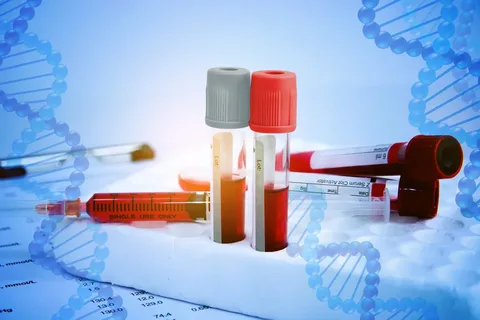When it comes to our health, one of the most valuable tools for diagnosis and monitoring is blood analysis. In Melbourne, blood analysis plays a crucial role in understanding an individual’s overall health and detecting any underlying medical conditions. Whether you are preparing for a routine check-up or investigating specific symptoms, a blood test can provide valuable insights into your well-being. This blog post will explore the significance of traits in Live Blood Analysis Melbourne, from understanding the procedures to interpreting the results.
Understanding Blood Analysis in Melbourne
Blood analysis in Melbourne involves a comprehensive examination of blood to gauge various health indicators. This process, conducted by skilled professionals in medical settings such as clinics and hospitals, is foundational to preventive health care and the management of existing conditions. When a patient undergoes a blood test, a small sample is extracted from a vein, usually in the arm, using sterile techniques to ensure safety and accuracy. This sample is then meticulously analyzed in a laboratory setting, where advanced equipment and methodologies are employed to evaluate the blood’s components.
These tests can reveal critical information about the body’s status, including but not limited to, the levels of certain nutrients, the presence of pathogens, and the functionality of organs. The comprehensive nature of blood analysis allows healthcare providers to construct a detailed health profile for the patient, facilitating informed decisions regarding treatment plans or further diagnostic testing.
Given the complexity of the data obtained, the results from these analyses are pivotal in diagnosing conditions early, monitoring ongoing health issues, and guiding lifestyle adjustments or interventions. With a keen focus on precision and patient care, Melbourne’s medical community leverages blood analysis as a key tool in achieving optimal health outcomes for individuals across the city.
 Preparing for Your Blood Analysis Melbourne
Preparing for Your Blood Analysis Melbourne
Before you have a Blood Analysis Melbourne, there are specific steps to ensure the accuracy and reliability of your results. Preparation can vary depending on the type of analysis being performed. For some tests, you might be instructed to fast, which means not eating or drinking anything except water, for a period, often 8-12 hours before your appointment. Adhering to this guideline is crucial as food and beverages can influence certain markers in your blood.
Equally important is communicating openly with your healthcare provider about the medications you’re currently taking, including over-the-counter drugs and supplements. These substances can affect test outcomes, and your doctor may advise you to pause them temporarily. However, never stop taking medication without first consulting your healthcare professional.
Also, share any existing conditions or symptoms you are experiencing, as this information helps in the accurate interpretation of your blood test results. If you have a history of feeling lightheaded during blood draws, it’s beneficial to mention this too, so arrangements can be made to make you more comfortable during the process.
The Blood Collection Process in Melbourne Clinics
At the heart of any comprehensive health check in Melbourne clinics is the process of blood collection, an integral step in blood analysis. Conducted by experienced phlebotomists, this procedure involves the gentle insertion of a needle into a vein, typically located on the inner arm, to draw the necessary volume of blood for the prescribed tests. While the thought of a needle may cause unease for some, it’s important to note that phlebotomists are trained to carry out the procedure with minimal discomfort, aiming to make the experience as smooth and stress-free as possible for the patient.
The actual duration of blood drawing is quite brief, often lasting only a few moments. Following the collection, the phlebotomist ensures that the site of the draw is properly cared for to minimize bruising, using a sterile bandage to cover the area. Each sample is meticulously labeled with the patient’s details to prevent mix-ups, then promptly transported to the laboratory for analysis.
This streamlined approach ensures that the sample remains uncontaminated and viable for accurate testing. Understanding the meticulous care and professionalism involved in the blood collection process can help alleviate any apprehensions, making it an easier experience for patients as they contribute to their health assessment journey.
Analyzing Different Types of Blood Tests
In Melbourne, healthcare professionals can conduct a variety of blood tests to glean insights into an individual’s health. Each type of test serves a specific purpose and helps in assessing different health aspects. A Complete Blood Count (CBC) is one of the most common tests, offering a detailed look at the levels and types of blood cells present, which can indicate conditions like anemia or infections.
The lipid panel is another critical test, focusing on cholesterol and triglyceride levels, vital for assessing heart disease risk. For those monitoring conditions such as diabetes or prediabetes, blood glucose tests provide essential information on blood sugar levels. Additionally, tests evaluating liver and kidney function are paramount for those with concerns or existing conditions related to these organs. The selection of tests is carefully tailored to the individual’s symptoms, medical history, and risk factors, ensuring a focused approach to diagnosing and managing health concerns.
With the advancements in medical technology, these tests are now more accurate and efficient, contributing significantly to preventive healthcare and the management of chronic conditions. Engaging in regular dialogue with healthcare providers about the most appropriate blood tests can empower individuals to take an active role in their healthcare journey.
Interpreting the Results of Your Blood Analysis
Understanding your blood analysis results is a critical step in managing your health effectively. When your healthcare provider reviews the findings with you, it’s your opportunity to gain insights into what the numbers and markers mean. Normal ranges are established for various components of the blood; however, values outside these ranges could signal a need for further attention or action. For example, elevated white blood cell counts may suggest an infection or inflammation, while low hemoglobin levels could indicate anemia.
Each parameter measured during a blood test offers a piece of the larger health puzzle. It’s essential to not only note the values that fall outside the normal range but also understand the interplay between different results. Your provider will interpret these results in the context of your overall health, symptoms, and medical history, offering a comprehensive view rather than focusing on isolated metrics.
Questions and active engagement during this discussion are vital. If certain terms or results are unclear, asking for clarification can demystify the data, making it more meaningful to you. This dialogue can also help you understand potential next steps, whether they involve lifestyle changes, further diagnostic tests, or treatment options. Remember, your participation in this process enhances your ability to manage your health proactively, armed with the knowledge of what’s happening inside your body based on the blood analysis results.
Follow-Up Procedures After Your Blood Analysis in Melbourne
After receiving the results from your blood analysis in Melbourne, your healthcare provider may outline specific steps based on these findings. Should any abnormalities or concerns arise from your test results, a detailed plan including additional diagnostics or treatment strategies will be discussed. For instance, elevated markers that could indicate a risk of heart disease might prompt a referral to a cardiologist for further evaluation. Alternatively, signs of nutritional deficiencies might lead to dietary consultations and supplementation.
It’s also possible that your provider will schedule repeat testing within a certain timeframe to monitor any changes closely, especially if you’re undergoing treatment for a diagnosed condition. This continuous monitoring is crucial in adjusting treatments as needed to ensure optimal health outcomes.
Additionally, your healthcare provider may suggest lifestyle modifications, such as increasing physical activity or adopting a healthier diet, to address or prevent health issues identified through your blood analysis. Engaging with other health professionals, such as nutritionists or exercise physiologists, might be recommended to support these changes effectively.
How Technology is Enhancing Blood Analysis in Melbourne
The integration of cutting-edge technology has significantly transformed the landscape of blood analysis in Melbourne, leading to improvements in both the precision and speed of diagnostic procedures. Modern laboratories are now equipped with highly sophisticated automated systems that streamline the processing of blood samples. These systems meticulously measure an array of biomarkers with unparalleled accuracy, reducing the potential for human error and ensuring consistency in results.
Furthermore, digital advancements have facilitated the seamless exchange of information between healthcare professionals. Electronic health records, a pivotal component of this digital evolution, offer an organized platform for storing and accessing patient data, including blood test results. This instant accessibility ensures that healthcare providers can make timely, informed decisions based on a comprehensive overview of a patient’s health history. Additionally, telemedicine platforms have emerged as a valuable tool, allowing for the remote discussion of blood analysis results between patients and their doctors.
This convenience is particularly beneficial for those who may have mobility issues or reside in remote areas, ensuring that geographical barriers do not impede access to crucial health information. Through these technological innovations, Melbourne’s healthcare system is able to deliver more efficient, accurate, and patient-centric blood analysis services, heralding a new era of medical diagnostics.
FAQs
Q: How often should I get a blood test?
A: The frequency of blood tests depends on your age, health condition, and risk factors. It’s best to consult with your healthcare provider for personalized advice. Generally, an annual check-up is recommended for most adults.
Q: Can I drink water before a blood test?
A: Yes, you can and should drink water before a blood test, especially if you’re required to fast. Staying hydrated helps make the blood draw easier.
Q: Do I need a doctor’s referral for a blood test?
A: In many cases, a referral from a healthcare provider is necessary to have a blood test done, as they can advise which specific tests are required based on your health.
Conclusion
Blood tests in Melbourne serve as an indispensable part of healthcare, offering deep insights into one’s physical condition and facilitating the early detection of health issues. Embracing the process of blood analysis, from preparation through to understanding your results, is a proactive measure in safeguarding your health. It’s essential to engage in this evaluative process, following the guidelines for preparation, participating in the collection procedure with understanding, and discussing results comprehensively with your healthcare provider. This approach empowers individuals to manage their health effectively, ensuring they are well-informed and actively involved in their healthcare journey.
| Other Good Articles to Read |
| Cme Blog Spot |
| Garcias Blogs |
| Yyc Blogs |
| Guiade Blogs |
| Blogs-Hunt |
| Impact-Blog |
| Smarty Blogs |
| Ed Blog |
| Mo Blogs |
| Blogs Em |
| Blog St |
| Related Business Listings |
| Contact Directory |
| Local Business Profiles |



